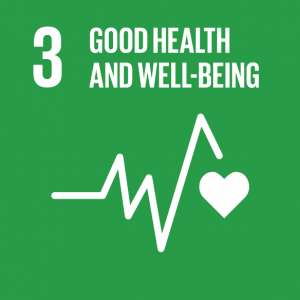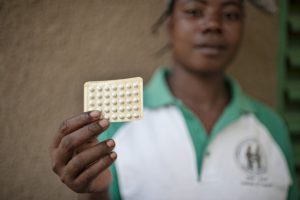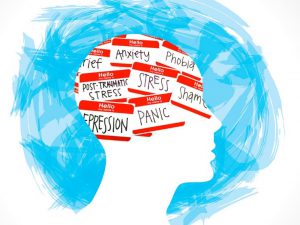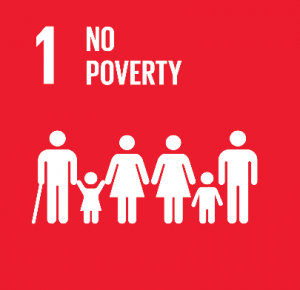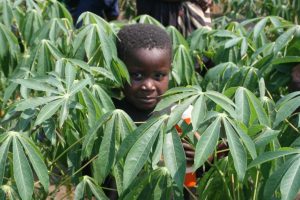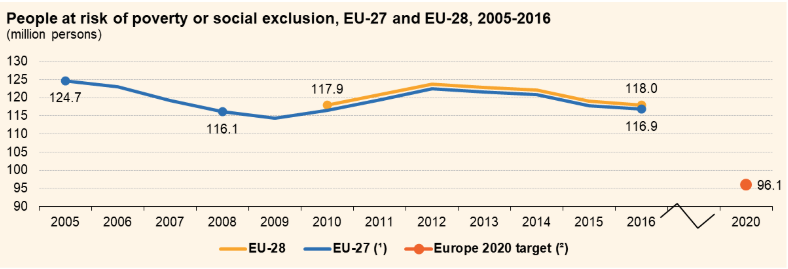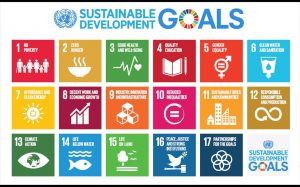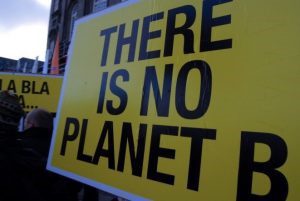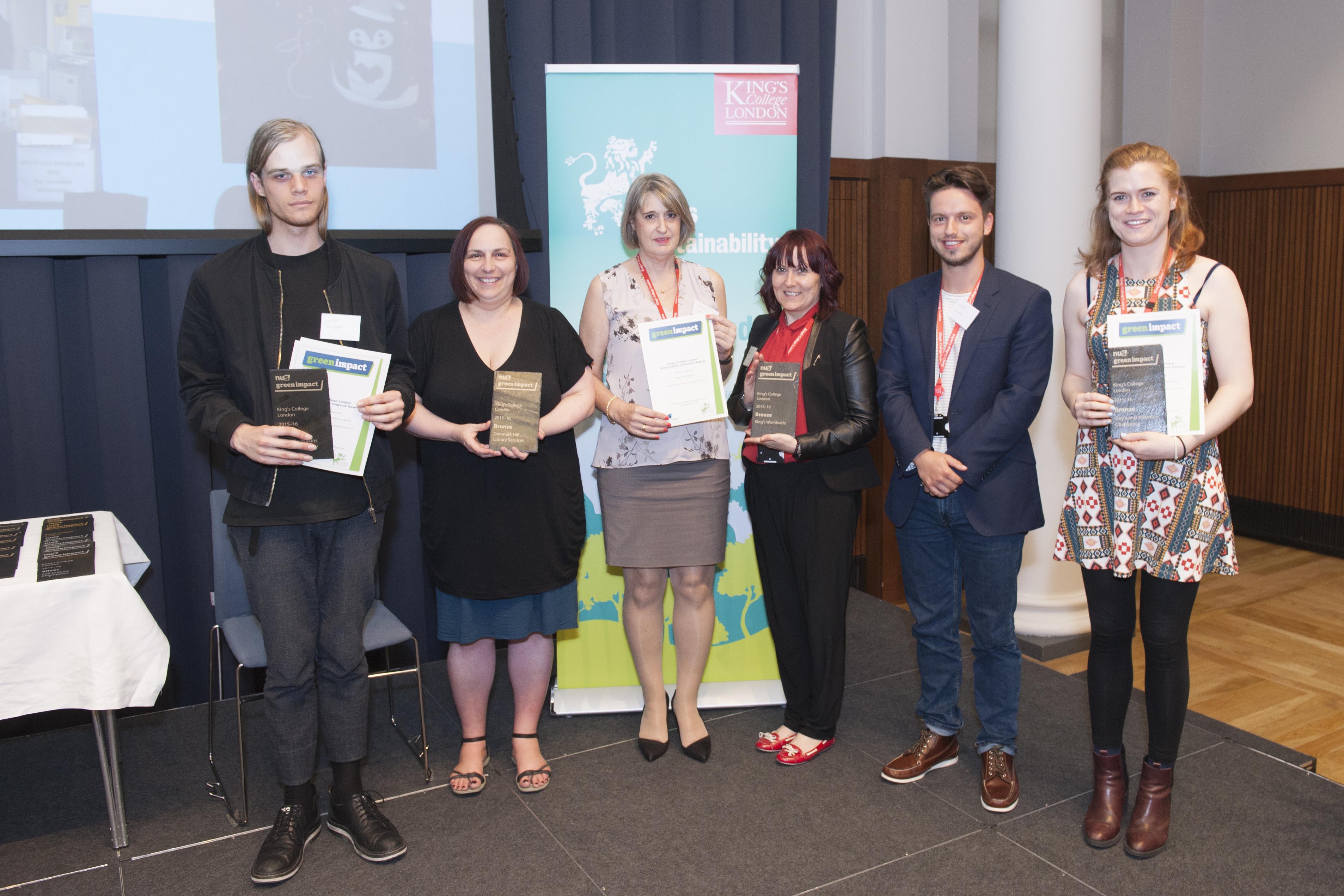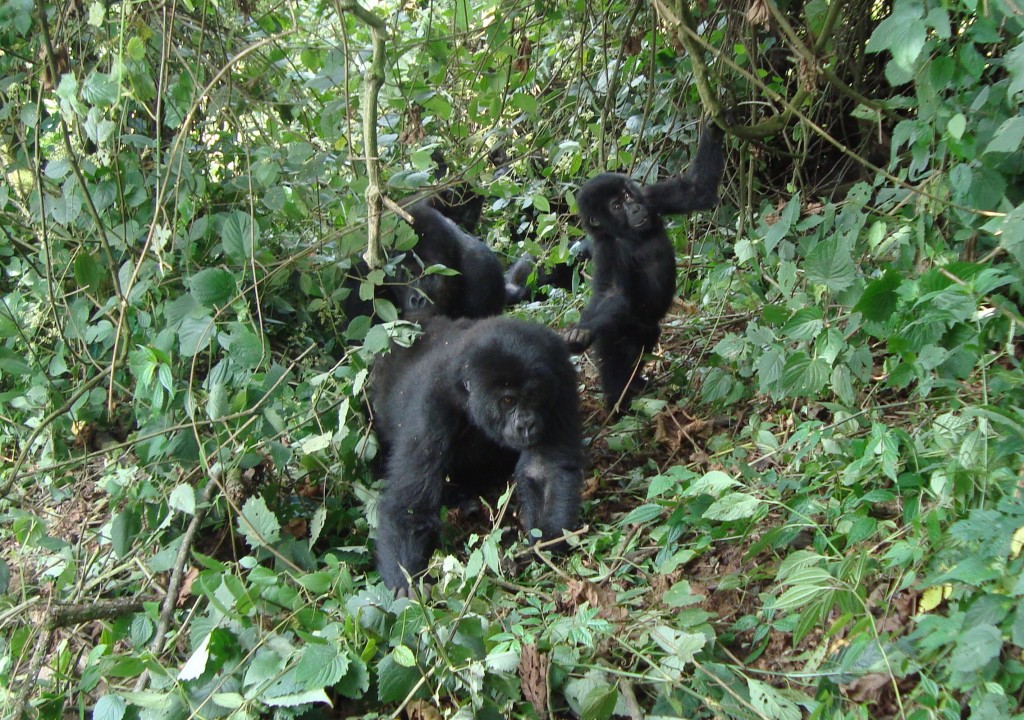This week’s guest blog comes fourth in a series of blogs on the Sustainable Development Goals (SDGs) courtesy of Onna Malou van den Broek, second year doctorate student at King’s in the European & International Studies Department. Onna’s doctorate project titled: ‘The Political Payoff of Corporate Social Responsibility (CSR): CSR as a Determinant for Lobbying Success’, which looks at the relationship between corporate sustainability and lobbying, holding a special focus on the SDGs.
This month is all about wellbeing at King’s. Unfortunately, access and quality of healthcare is not always guaranteed. Article 25 of the UN Human Rights Declaration (1948) states that everyone has the right to a standard of living that enables health and wellbeing (1). Due to the lack of accurate and credible data, it is difficult to measure the current state-of-art of healthcare provision.
SDG 3: Good health and wellbeing for everybody
Sickness and death are part of our natural cycle. However, there are many situations in which it can be prevented or cured. The number one cause of death are cardiovascular diseases. Amongst children under five, birth trauma’s, infections and bacteria lead to over 6 million annual deaths (2). Furthermore, there are large regional difference that mirror income disparity; the worst health situation can be found in Sub-Saharan-Africa and South Asia. As an example, maternal deaths are 14 times more likely to happen in developing countries and children are twice more likely to die before they turn five. Furthermore, developing countries still struggle with deadly diarrhoea contaminations caused by poor hygiene’s.
Reproduction, healthcare and medication
The first target is that everyone should have access to a good quality of healthcare and appropriate medications and vaccinations (3). Strengthening local capacities, for example; affordable care, educated doctors and hygienic hospitals, is a stepping-stone to achieve this. Moreover, women and children are central to accomplishing this goal. Some targets are, therefore, directed at issues such as reducing maternal mortality, preventing children’s deaths, eliminating substance abuse during pregnancy and easing access to sexual and reproductive services. Lastly, more general targets focus on issues regarding to common diseases, such as HIV and tuberculosis, traffic deaths and diseases caused by pollution.
Every Women, Every Child
The health of women and children is essential to achieve sustainable development. Healthy women and children create healthy societies and healthy societies build healthy economies, stability and harmony. The project “Every Women Every Child” was set up in 2010 by Ban Ki-Moon and works with various partners to tackle gender related health issues (4). One of their projects, in collaboration with Unilever and USAID, aims to tackle infant deaths due to a lack of hygiene. In order to achieve this, they encourage people to make a habit out of washing their hands with soap on a regular basis (5).
Contraception and family planning
High on the Dutch development agenda, and close to my heart, is sexual and reproductive health-care. The Netherlands helps 1.8 million girls and women to access contraception by strengthening third countries’ healthcare systems and actively lobbying foreign governments. Central to our development policy is family planning. Besides the project “She Decides” of our minister Lilianne Ploumen (which I will tell you more about in SDG 5), we are part of the partnership “Family Planning 2020”. The aim of this partnership is to ensure that every girl and woman is able to freely and independently make the decision whether, when and how many children she wants (7).
No well-being without mental health
There is a growing awareness that mental health is crucial to achieve the SDGs (8). “One in four people experience a mental health episode in their lifetime, but the issue remains largely neglected,” said UN Secretary-General António Guterres. Mental health issues are strongly correlated with structural societal problems and too-often result in the neglect of human dignity and forced treatment. Potential solutions arise not only from within but also from outside the regular healthcare sector. The UK project “Time to Change” challenges the way we think and act around mental health in order to overcome shame and loneliness (9).
What can you do to achieve better health and well-being?
Healthcare is a worldwide problem. Start, therefore, with tackling a few health-related issues within in your own live, direct environment or broader society:
- Take care of your own body. Eat healthy, exercise, drink in moderation and don’t wait around to visit a doctor. Moreover, make sure that you use contraception during sex, and only have sex without a condom if you are 100 percent sure you both are free of STDs.
- Take care of your mind. Get enough rest and be aware of the signals of mental problems (10). One of the things I find useful is mindfulness (do you already know the Headspace app?). The online course “de-mystifying mindfulness” elaborates the clinical background of mindfulness in an accessible and academic way (11).
- Challenge mental health stigma’s. Look at the “Time to Change” resource webpage and inform yourself about mental health issues. Start a conversation with your colleagues, be aware of stereotyping media coverage and call people out on their discriminatory behaviour.
Resources:
- Whether healthcare is a human right, is still disputed. Read here why the World Health Organisation argues it is: http://www.who.int/news-room/fact-sheets/detail/human-rights-and-health
- You can find all facts around SDG 3 here: https://www.un.org/sustainabledevelopment/health/
- Read more about the top 10 causes of death: http://www.who.int/news-room/fact-sheets/detail/the-top-10-causes-of-death
- Find more information about the project “every women, every child”: http://www.everywomaneverychild.org/
- Read more about Unilever’s project: https://www.unilever.com/sustainable-living/improving-health-and-well-being/health-and-hygiene/healthy-handwashing-habits-for-life/helping-people-get-into-healthy-hygiene-habits/
- Track the development of the Netherlands against the SDGs: https://sustainabledevelopment.un.org/content/documents/16109Netherlands.pdf
- You can find more information about “Family-Planning 2020” here: http://www.familyplanning2020.org/
- The results of the UN round-a-table about mental health are summarized here: https://www.un.org/sustainabledevelopment/blog/2018/05/mental-health-neglected-issue-key-achieving-global-goals-say-un-chiefs/
- Learn more information about “Time to Change”: https://www.time-to-change.org.uk/
- Want to participate in well-being activities, such as the Thursday meditation, at KCL? Take a look at the 2019 programme here:
https://internal.kcl.ac.uk/hr/od/other/finalwellbeingprogramme19.pdf - Start the Mindfulness MOOC on Coursera: https://www.coursera.org/learn/mindfulness?siteID=D8u8CTDRU0o-4QmkyrapdnHOLm1D7Ksf9A&utm_content=10&utm_medium=partners&utm_source=linkshare&utm_campaign=D8u8CTDRU0o

